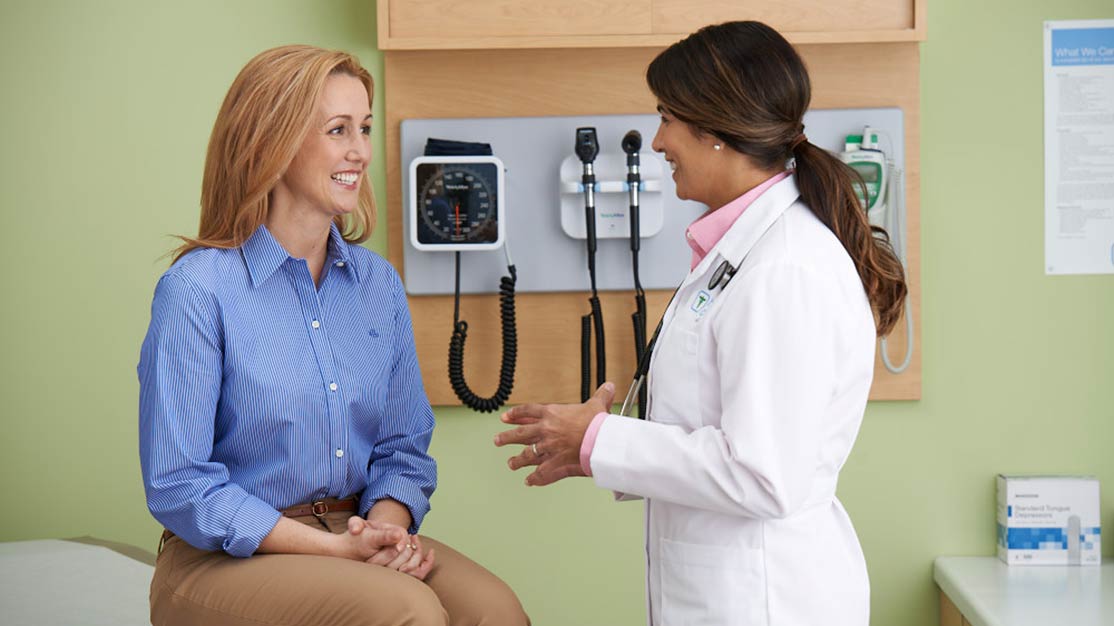When are Telehealth Services or Retail Clinics Right for You and Your Family?

Getting care for many types of non-emergency medical conditions can be as easy as walking into your pharmacy or simply using your computer or phone.
Retail clinics are commonly found in many pharmacy locations, offering convenient, accessible, and oftentimes more affordable care. Today there are some 1,900 retail clinics in the U.S.
Patients and a growing number of health care providers are increasingly becoming comfortable communicating through email, text, and video. Such "e-health" or telehealth care allows you to visit with a doctor or other qualified health professional without leaving home or taking time away from work.
Given the growing popularity of these non-traditional ways of accessing health care, here are tips for you and your family.
What are retail clinics?
Retail clinics that are typically located in pharmacies provide immediate care for a narrowly defined scope of services, such as the diagnosis and treatment of minor acute illnesses, as well as some preventive care and care for chronic conditions. Care is typically provided by registered nurse practitioners or physician assistants, guided by clinical protocols. Retail clinics differ from urgent care clinics that treat a wider range of acute conditions requiring immediate but not emergency care.
What are the most common conditions treated at retail clinics?
Typical services may include:
- Prevention and wellness, such as vaccines, physical examinations, sports physicals, health screenings and testing
- Diagnosis and treatment of minor illnesses, such as sinus infections, urinary tract infections.
- Treatment for minor injuries and for skin conditions.
- Monitoring and management of certain ongoing health conditions, such as high blood pressure.
What is telehealth?
Telehealth is the use of electronic information and telecommunications technologies to manage your health and well-being. Also called, e-health or telemedicine, telehealth includes video or online doctor visits, email communication with health care providers and a growing number of "apps" for health monitoring.
What are the most common conditions treated through telehealth?
Telehealth visits can be provided by physicians, nurse practitioners and physician assistants. They can treat you through a webcam or over the phone 24/7 without an appointment. Often, they can write a prescription if it is clinically appropriate—although certain restrictions apply. Telehealth providers can treat a wide range of conditions, including:
- Acne
- Allergies
- Asthma
- Bronchitis
- Cold & Flu
- Constipation
- Diarrhea
- Ear Infection
- Fever
- Headache
- Insect Bites
- Joint Aches
- Nausea
- Rashes
- Sinus Infections
- Sore Throat
- UTI
The privacy and security of your information is important
Personal information and details about the visit—whether through retail clinics or telehealth—must be maintained in a confidential and secure manner. Your provider should only share information with your selected doctor and pharmacy. Information transmitted through the internet should be protected in a secure manner.
What care services should you expect from your pharmacist?
Pharmacists are an excellent, accessible resource for you and your family. They are experts in drug information, checking for drug interactions when filling prescriptions and offering consultation about how to take medications. Pharmacists are authorized to administer vaccines in most states. And they are regularly sought for advice on over-the-counter medicines.
When should you seek emergency care or call 911?
If at any point your symptoms worsen or you feel like you are experiencing a medical emergency, call 9-1-1 or proceed to the nearest emergency room.
Be well, stay well.
Andy Stergachis, Ph.D., R.Ph. is the Director of the Global Medicines Program at the University of Washington in Seattle and a subject expert on public health and pharmacy-related topics.
Clinical Review: Reviewed by Judith Sommers Hanson, Walgreens Clinical Team, 7/30/15